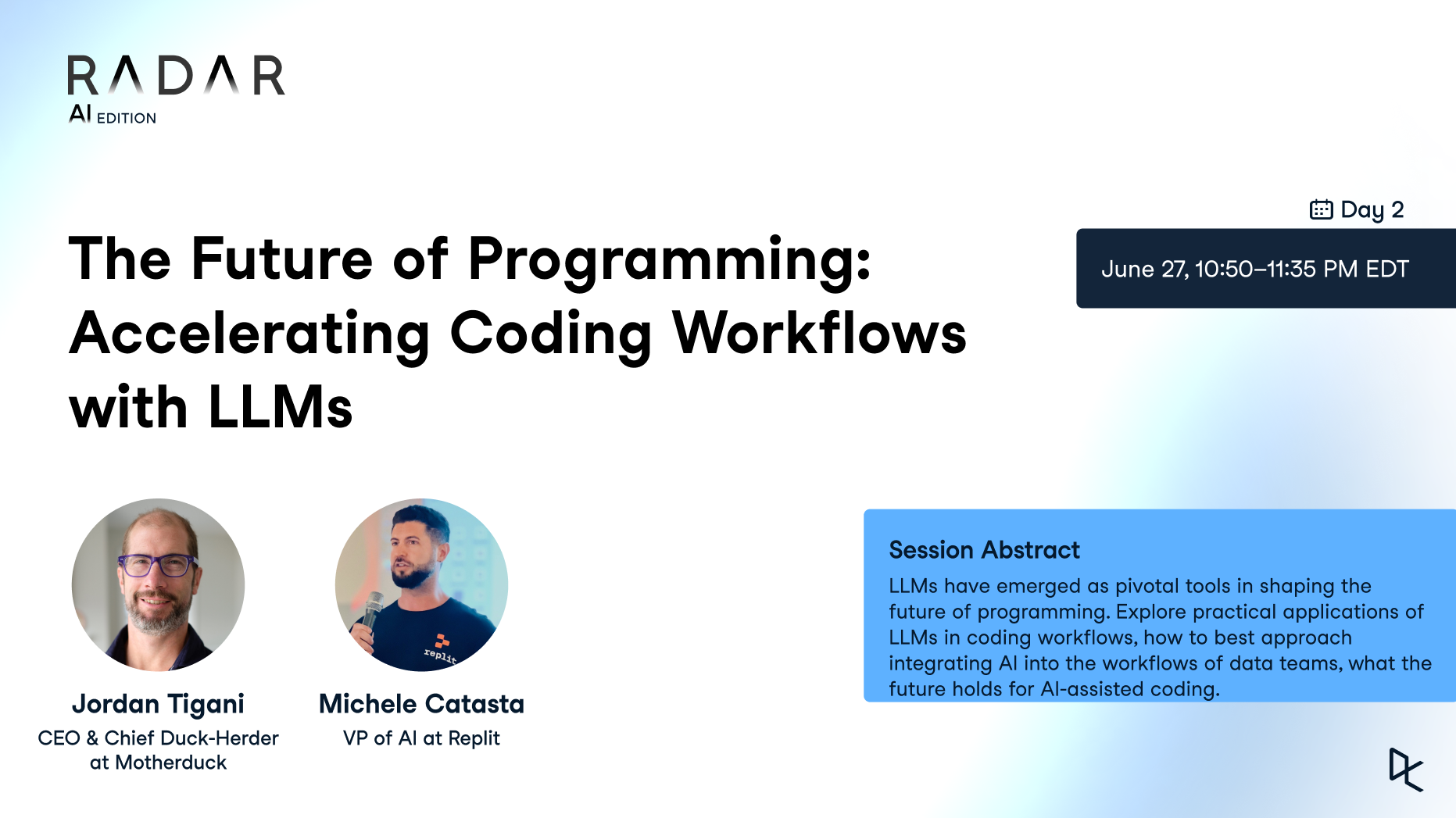Speakers
Training 2 or more people?
Get your team access to the full DataCamp library, with centralized reporting, assignments, projects and moreThe Future of Programming: Accelerating Coding Workflows with LLMs
July 2024
Related
webinar
How To 10x Your Data Team's Productivity With LLM-Assisted Coding
Gunther, the CEO at Waii.ai, explains what technology, talent, and processes you need to reap the benefits of LLL-assisted coding to increase your data teams' productivity dramatically.webinar
Unleashing the Synergy of LLMs and Knowledge Graphs
This webinar illuminates how LLM applications can interact intelligently with structured knowledge for semantic understanding and reasoning.webinar
Best Practices for Putting LLMs into Production
The webinar aims to provide a comprehensive overview of the challenges and best practices associated with deploying Large Language Models into production environments, with a particular focus on leveraging GPU resources efficiently.webinar
Understanding LLM Inference: How AI Generates Words
In this session, you'll learn how large language models generate words. Our two experts from NVIDIA will present the core concepts of how LLMs work, then you'll see how large scale LLMs are developed.webinar
Supercharging your Data Workflow with AI in DataCamp Workspace
Take a deeper look at how AI is becoming increasingly embedded in DataCamp Workspace, DataCamp’s modern data science notebook.webinar

